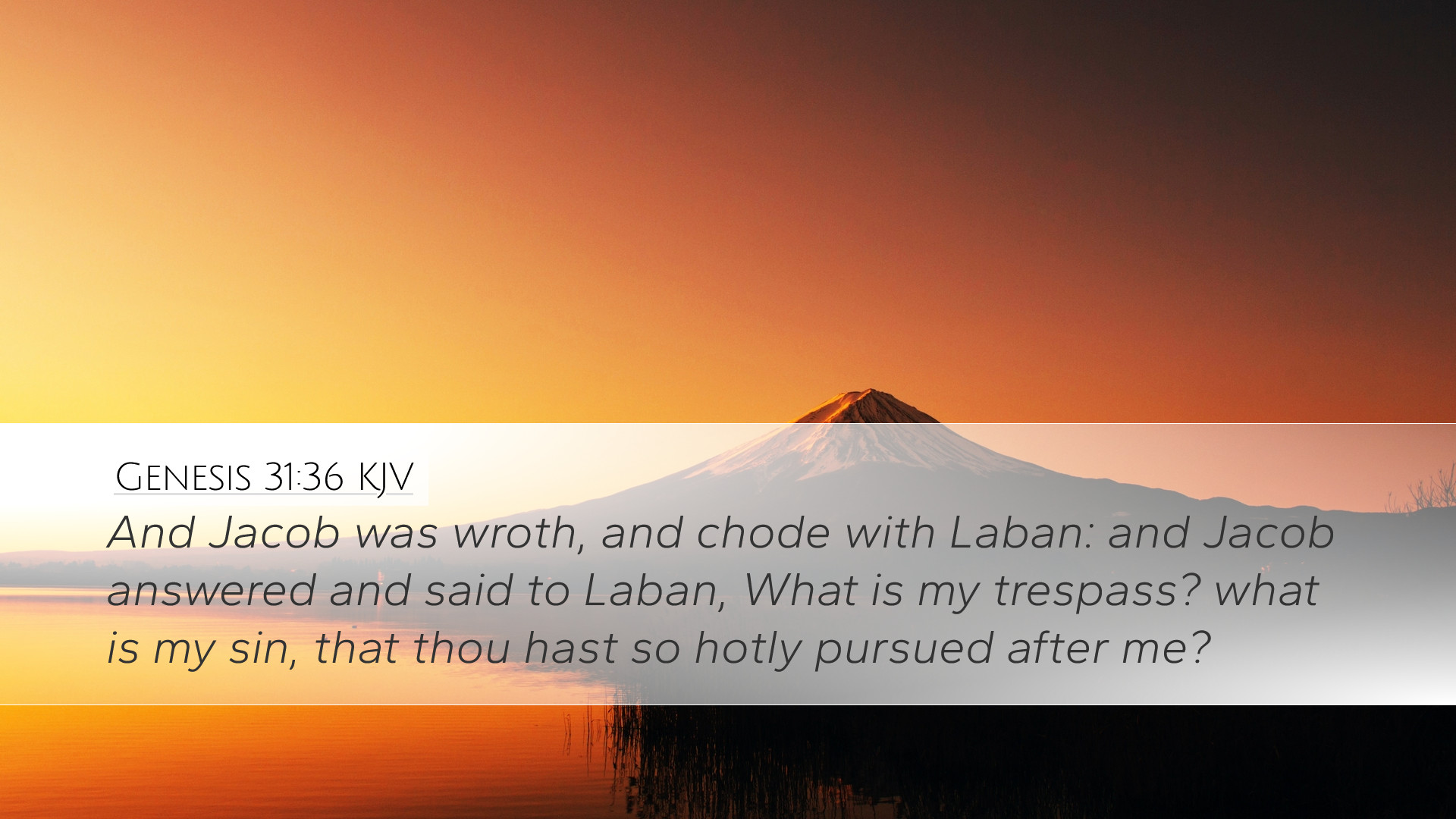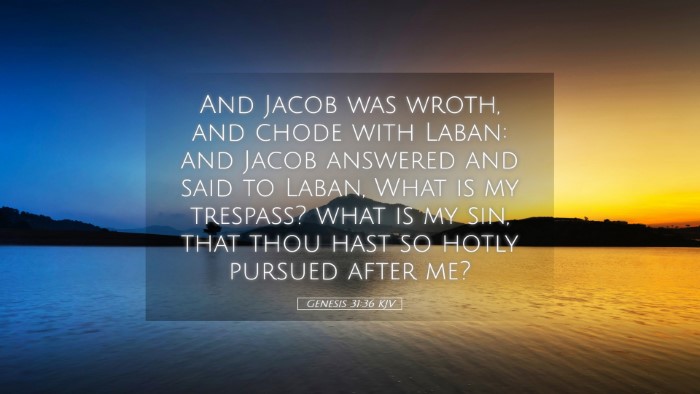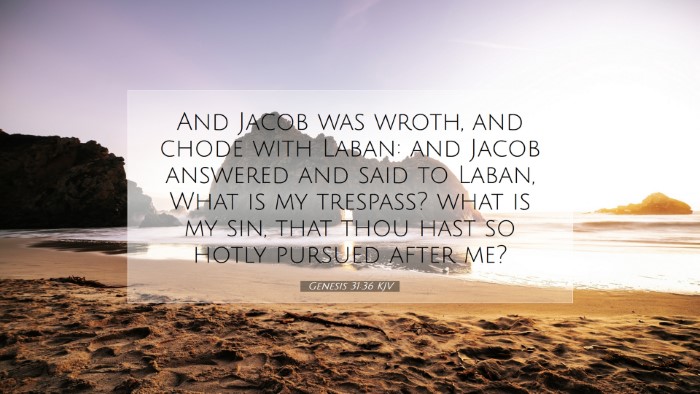Commentary on Genesis 31:36
Verse: “And Jacob was wroth, and chode with Laban: and Jacob answered and said to Laban, What is my trespass? what is my sin, that thou hast so hotly pursued after me?” (Genesis 31:36, KJV)
Introduction
This verse occurs within the broader narrative of Jacob's flight from Laban, his father-in-law, after years of servitude. Jacob, after having served Laban for his wives and flocks, takes the initiative to leave without informing Laban. This act sets the stage for a confrontation between the two men, highlighting themes of conflict, accusation, and divine providence.
Context and Background
This encounter follows Jacob’s peaceful but anxious departure. Laban’s pursuit showcases his displeasure at Jacob’s actions, while Jacob’s response reflects his frustration and hurt. The tension in this moment captures the complex familial relationships in Genesis and demonstrates the struggles of patriarchal identity and blessing.
Jacob’s Anger
Analysis of Jacob’s Wrath: Jacob was increasingly frustrated by Laban’s attitude and treatment, which had become oppressive. Matthew Henry notes that Jacob’s anger was justified, considering Laban’s deceitful nature and refusal to acknowledge the years of labor that Jacob had invested.
Henry echoes the sentiment that anger can be a natural response when one is wronged, but it is crucial for one to control that anger and express it constructively. Pastors and theologians can derive that this moment serves as a reminder of the importance of handling disputes with both passion for justice and a spirit of reconciliation.
Jacob’s Questioning
Rhetorical Questions as a Defense: Jacob's inquiry—“What is my trespass? what is my sin?”—serves multiple purposes. Albert Barnes suggests that Jacob's questions are not only a defense but also an appeal for clarity and justification against Laban's accusations. This rhetorical method encourages deeper reflection on one’s actions and the impact they have on relationships.
The repetition emphasizes Jacob's innocence and the gravity of Laban's pursuit. It signifies the weight of accusations in familial disputes, urging individuals in ministry and scholarship to explore the significance of accountability, understanding equitable conflict resolution.
The Nature of Laban’s Pursuit
Laban's pursuit mirrors a protective yet possessive relationship, as he confronts Jacob about stolen household gods. Adam Clarke emphasizes that Laban's characteristics demonstrated a blend of selfishness, fear, and a misguided sense of authority over Jacob's actions. This highlights the primary role of power dynamics in relationships, particularly within familial structures.
Drawing from Clarke's insights, one can reflect on the implications of power misused or abused—a relevant theme in pastoral counseling and theological discussions regarding authority in relationships, especially in contexts of leadership and servitude.
Theological Reflections
Divine Providence: This encounter serves a pivotal role in the broader narrative, showcasing God's involvement in Jacob's life. Despite conflicts, God remains sovereign, working through the human actions and responses expressed in this chapter. Reflecting on verses 24-30, one sees how God turns these confrontations into lessons on faith and trust.
Implications for Faith Leaders: For pastors and theologians, the essence of this confrontation invites examination of how struggles and trials can serve to fortify one's faith. Just as Jacob wrestled with his past, so too must believers contend with their relationships, issues of loyalty, and the divine path of reconciliation.
Applications for Modern Believers
- Conflict Resolution: Navigating relationships can be fraught with tension; Jacob's situation implores modern believers to confront conflicts with a spirit of humility and openness to dialogue.
- Personal Reflection: Just as Jacob questioned his own actions and motivations, individuals are urged to engage in self-assessment regarding their contributions to conflict and misunderstanding.
- Trusting God’s Plan: The underlying theme of divine guidance and providential care serves as encouragement for believers to trust that amid disputes, God is orchestrating a higher purpose.
Conclusion
The confrontation between Jacob and Laban encapsulates vital lessons about conflict, accountability, and divine sovereignty. As we study Genesis 31:36, we recognize that our interactions are part of God's larger narrative in our lives. Adopting the insights from historical commentaries—such as those by Matthew Henry, Albert Barnes, and Adam Clarke—can deepen our understanding and encourage scholars, pastors, and students to engage with the text on a more profound level, fostering growth in both personal faith and communal relationships.


